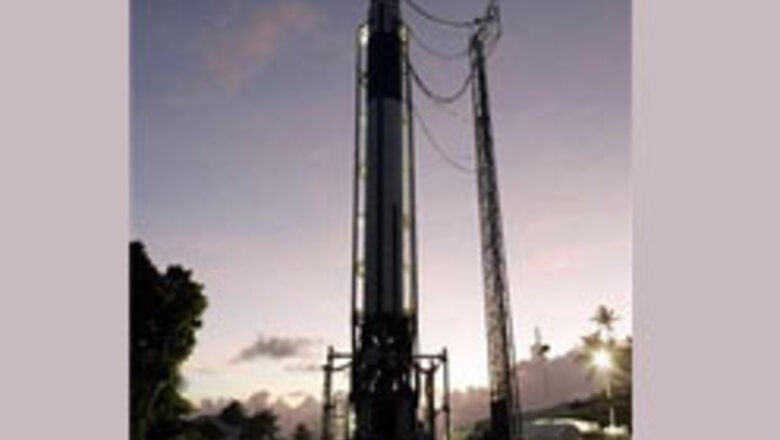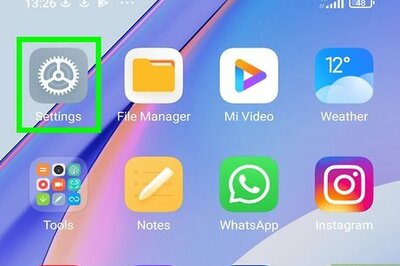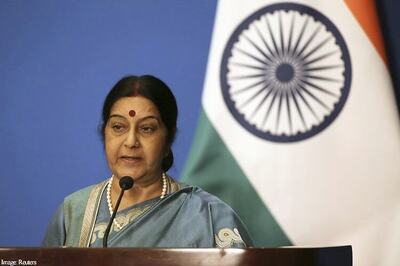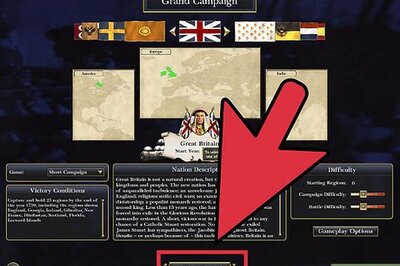
views
Cape Canaveral (Florida): A budget rocket developed by the founder of Internet financial services firm PayPal blasted off from a remote island in the South Pacific, bolstering hopes of cheaper fares to fly cargo, and eventually people, into space.
The 21-metre booster rocket called Falcon 1 lifted off from Omelek Island on a US military missile test range at Kwajalein Atoll in the Marshall Islands and successfully arrived in space minutes later.
About five minutes into the flight, a problem cropped up with the booster's second-stage engine, which shut down early due to an unexpected roll, said Space Exploration Technologies chief Elon Musk.
"We feel that is something straightforward to fix," Musk told reporters in a conference call after the flight. "It's definitely a good day."
The rocket's second stage likely re-entered the atmosphere after less than one orbit of Earth, Musk added.
The primary goal of the mission was to demonstrate the Falcon's flight capabilities, though the booster carried a pair of engineering experiments into orbit as well.
The Defense Advanced Research Projects Agency was the customer for Falcon's flight.
Space Exploration Technologies, or SpaceX, is offering the rocket, as well as an untested heavy-lift booster, for sale at about one-fifth current market rates.
Falcon 1, for example, sells for about $7 million.
SpaceX's debut mission a year ago ended shortly after liftoff when a corroded nut cracked, triggering a disastrous fuel leak and fire.
The failure did little to shake confidence in the firm's future, with SpaceX subsequently winning several new contracts, including a $278 million award from NASA to demonstrate cargo delivery services to the International Space Station.
The rocket was about 90 seconds away from liftoff on Monday when its computers automatically aborted the launch due to a software glitch.
The rocket also automatically cut off the first launch attempt on Tuesday due to a low-pressure reading.
Technicians were able to fix the problem and make a second attempt an hour later.
The company has launch commitments worth about $400 million for flights on the Falcon 1 and heavy-lift Falcon nine rockets, said Gwynne Shotwell, vice president of business development.
SpaceX also is developing a cargo and crew capsule called the Dragon, which will be used for NASA-backed test flights for space station transport.
NASA also awarded $207 million to SpaceX competitor Rocketplane-Kistler of Oklahoma City in Oklahoma, for test flights of its K-1 booster.
Despite the glitch during Tuesday's flight, Musk said the next mission for Falcon would be to deliver a military communications satellite to orbit.
"We don't anticipate needing any more demonstration flights," he added.




















Comments
0 comment